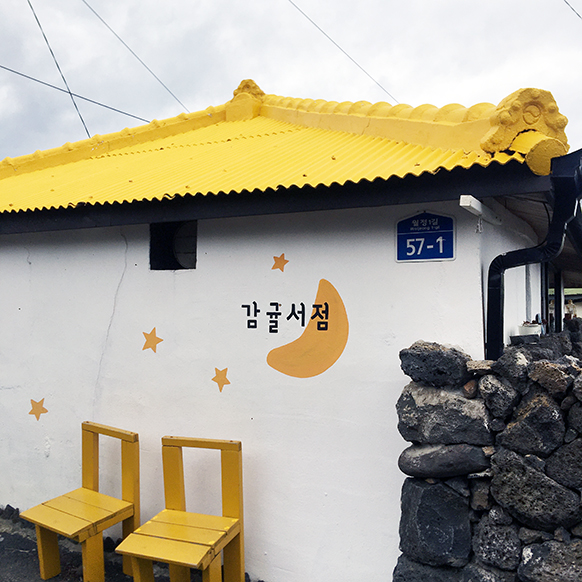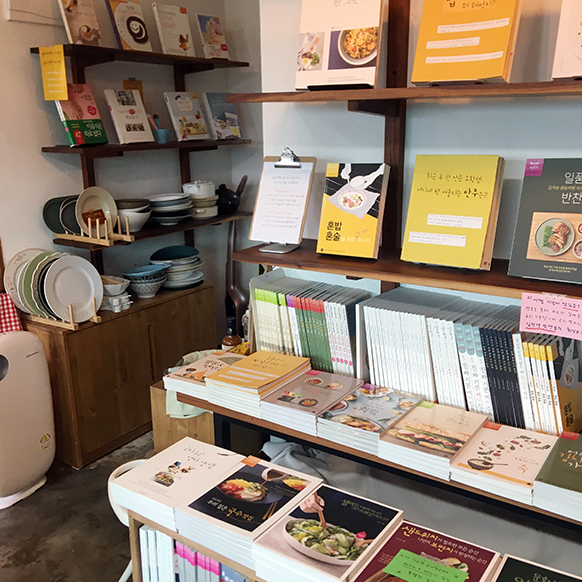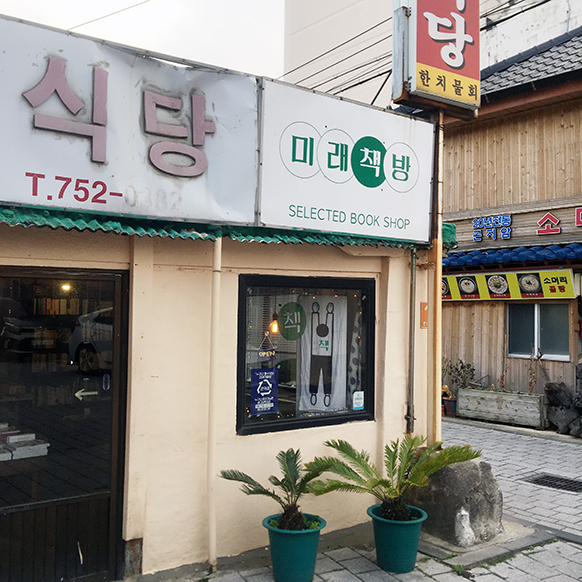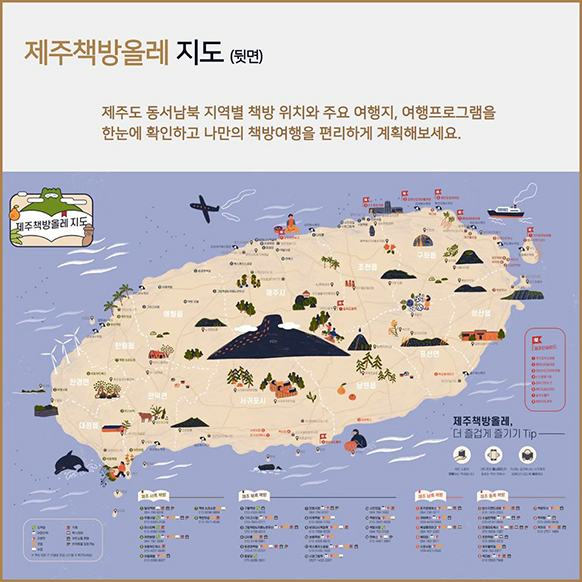January is that time of the year when everyone makes New Year’s resolutions, hoping for a better year. One classic resolution is reading more books. Reading a single book can help a person to learn new things, improve one’s language skills, grow emotional intelligence, and explore new ideas. Despite such benefits, the reading population of South Korea is steadily decreasing. A study on the reality of reading conducted by the Ministry of Culture, Sports, and Tourism reported that 40% of Korean adults haven’t read a single book within a year. The average annual reading rate including both students and adults was 74.4%, slightly lower than the average annual reading rate of OECD countries. One island off the southern coast of Korea is trying to make a change. Jeju-do is different; it is known as the “Island of Books” in Korea. It has more than 200 bookstores and the Jeju islanders read 14 books annually on average. (The full version of 2017 Study on the Reality of Reading can be downloaded from the followed link: http://www.korea.kr/archive/expDocView.do?docId=37860) Opening a new decade, Jeju citizens and the local government came up with a New Year’s resolution: they would spread the island’s reading culture nationwide.
Worldwide, there has been a new sensation in reading culture recently - the emergence of small bookstores in popularity. And Korea is no exception. Over the last five years, the number of small bookstores has been on the rise, offering a new paradigm in modern reading culture. Those who are not quite interested in reading might be unfamiliar with small bookstores or independent bookstores. Independent bookstores are different from large franchise bookstores such as Kyobo Books or Aladin Bookstore. Small bookstores do not focus on business or profitability, which means they are irrelevant to large publishing companies. They do not have to focus on bestseller books and cultural fad; they sell any book they want to. Most independent bookstores have their own concept. Some focus on a specific genre such as poem, photograph collection, picture book, or mystery, and some have their own topics such as cats, traveling, or cooking. Small bookstore owners are curators of their own bookstore, they sell books they like or have read before. This allows these bookstores to give customized recommendations to the customers. This is the reason that many people are drawn to small bookstores. Small bookstores are making the book industry colorful by appreciating diversity and personal preferences.
It is in this small bookstore phenomenon that Jeju-do leads the rest of the country too. Unique independent bookstores dot entire in Jeju-do; lovely small bookstores are everywhere. One example is the “Mandarin Orange Bookstore” located near Woljeong-ri Beach. This small bookstore is managed by a cookbook publishing company “Recipe Factory.” Mandarin Orange Bookstore not only sells cookbooks from Recipe Factory but also uncommon indie recipe books and magazines. Another small bookstore is “Mirae Bookstore” located near Dongmun Traditional Market. This bookstore focuses on small published books and magazines. One interesting feature of this bookstore is that it offers the owner’s reviews of the books it carries. The books cover diverse genres, picture books to essays and classics. Small bookstores, each lovely and unique, are the unmistakable fixtures of the Jeju landscape.



Since there are lots of unique small bookstores in Jeju, there are even some travelers who visit Jeju-do to go on a ‘Jeju small bookstore tour.’ Jeju Good Travel, a social enterprise, recently published a Jeju Olle Bookstore Map for those who want to visit Jeju’s small bookstores. This map was distributed for free online and offline in bookstores that are listed on the map. The map included location, contact information, and basic introduction of each bookstore. This map can be a great guideline for people who are already into reading books, but it can also attract other travelers from the mainland to take a look at these small bookstores and be interested in reading. This shows the potentiality of Jeju small bookstores as a commodity. It can be an appealing tourism product, which can draw modern Koreans to take a look at books and become a part of the reading culture.

Even before the tourist companies noticed Jeju’s reading culture as a commodity, the Jeju local government had been at hard work to promote the reading culture in Jeju. Over the years, the Jeju local government has instituted such policies as constructing at least one public library in every city in Jeju-do, building a network between Jeju independent bookstores, local publishing companies, and book-related organization or institutions, and hosting Jeju Reading Culture Festival with public libraries in Jeju for the last three years. (More information about such policies can be found on the following article: http://www.jejunews.com/news/articleView.html?idxno=2145412) As an extension of such efforts, Jeju-do is now trying to spread this reading phenomenon to the Korean Peninsula by hosting the 2020 Korea Reading Festival. Korea Reading Festival is an event held by the Ministry of Culture, Sports, and Tourism and Publication Industry Promotion Agency of Korea (PIPAK) to promote and advertise reading. This festival has been held annually in different cities of Korea since 2014. Each year, 226 local governments compete to host this festival and the judges from PIPAK select the venue. After intense competition, Jeju-do was finally selected as the venue for the 2020 Korea Reading Festival. The Jeju-do local government announced that the city would be working hard to spread the reading culture of Jeju-do to the whole Korean Peninsula by preparing multiple lectures, hands-on experiences, exhibitions, and more creative programs throughout the Korea Reading Festival. This year, the festival takes place near Seongsan Park, from September 4th to 6th. Many book lovers from all over Korea are looking forward to visiting Jeju-si for this highly anticipated festival.

Moonyoung (Rosy) Bang
Sophomore (Grade 10)
Gangnam International School

